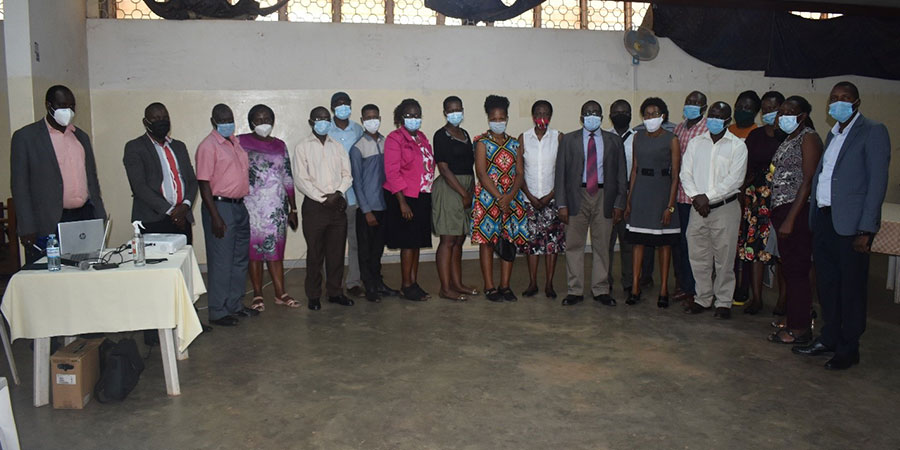The Entomic Project to Breed Grasshoppers as a Way of Enhancing Efficiency of Entomic Meat and Protein Value Chain in Africa
Compiled by Jacinta Nakaye and Ssali Juma Kawuki
Prof. John David Kabasa, the Principal COVAB who also doubles as the Co- Principal Investigator of the Entomic Research Project, said that they are embarking on establishing greenhouses as habitats for edible insects to breed and enhance efficiency of entomic meat and protein value chain in the African region.
He highlighted that grasshoppers’ and other edible insects’ habitats are currently unknown since ecosystem is riddling due to the highly increasing global population.
“We need to find out the habitats for grasshoppers and establish greenhouses where they can breed since there is high interest in the entomic science initiative. Grasshoppers and white ants are highly consumed in Africa, we also see the black soldier fly and maggots being fed to animals and poultry,” Prof. Kabasa added.
He was speaking during the Entomic Research Project dissemination meeting which took place on Wednesday 2nd June 2021, in the College media hall.
Prof. Kabasa further said that there’s need to produce more from grasshoppers than merely frying them for a commercial benefit.
Research by the Entomic Project
During the dissemination meeting, the Principal Investigator of the Entomic Research Project, Dr. Claire Mugasa reported that due to the increasing global population, there is an increase in the demand for protein by the humans and edible insects are the solution.
She reported that the entomic sector is just emerging and that the grasshopper is the most promising protein edible insect.
On presenting a study on Prioritization of entomic meat in Central Uganda, Dr. Richard B. Asaba said that it was reported by entomic insect harvesters that grasshoppers are becoming smaller and reducing in numbers as seasons change.
He therefore appealed to entomic scientists to investigate the cause of this reduction since Entomic meat production is an emerging sector with high financial benefits.
Grasshoppers and white ants are mostly harvested in rainy seasons while smaller numbers and tiny sized insects are got in the dry season.
In regards to pathogen content in edible insects, a study was done on Parasitological, Microbial, and Nutritional analysis of edible grasshoppers in Central Uganda by Ms. Lydia Namukomasi, a Masters student under the Entomic Research Project. She reported that according to her research, most contamination was discovered in Mityana district in the unplucked grasshoppers and contamination was also discovered in fried grasshoppers of Kibuye market. She therefore recommended the need for increased awareness in regards to entomic meat hygiene.
With funding from Makerere University Research and Innovation Fund (RIF), the Entomics Research Project at COVAB is undertaking a research and innovation project towards “Enhancing the Efficiency of Emerging Entomic Meat and Protein Value Chains in Uganda” implemented in Central Uganda. The project is prioritizing emerging entomic meat value chains for food, feed, livelihood and public health enhancement in Uganda and, it is as well analyzing the public health safety and nutrition status of the edible grasshopper (Nsenene) along the value chain. The project completed the phase of the study comprising of community surveys.
PICTORIAL
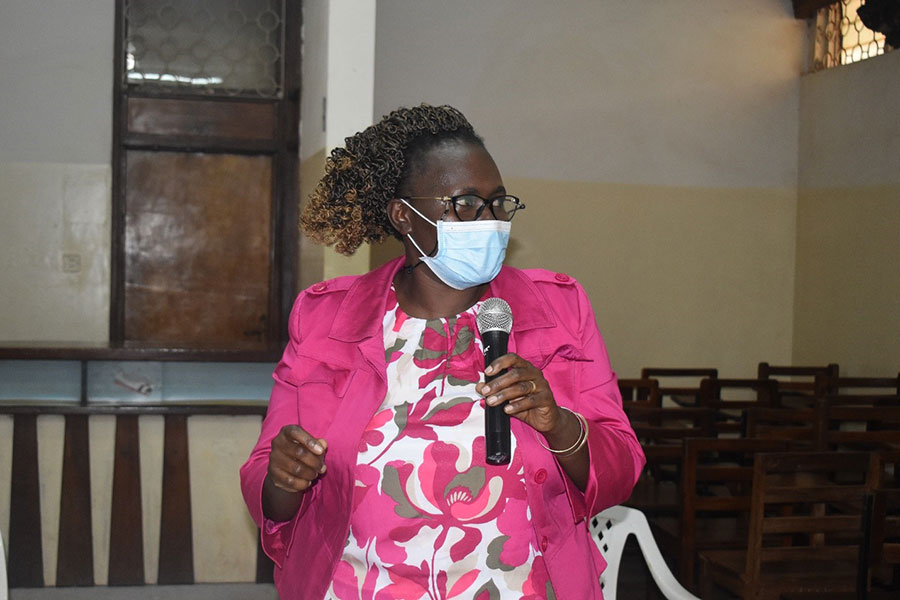
The Principal Investigator of the Entomic Research Project, Dr. Claire M. Mugasa giving an overview of the project during the dissemination meeting at COVAB.
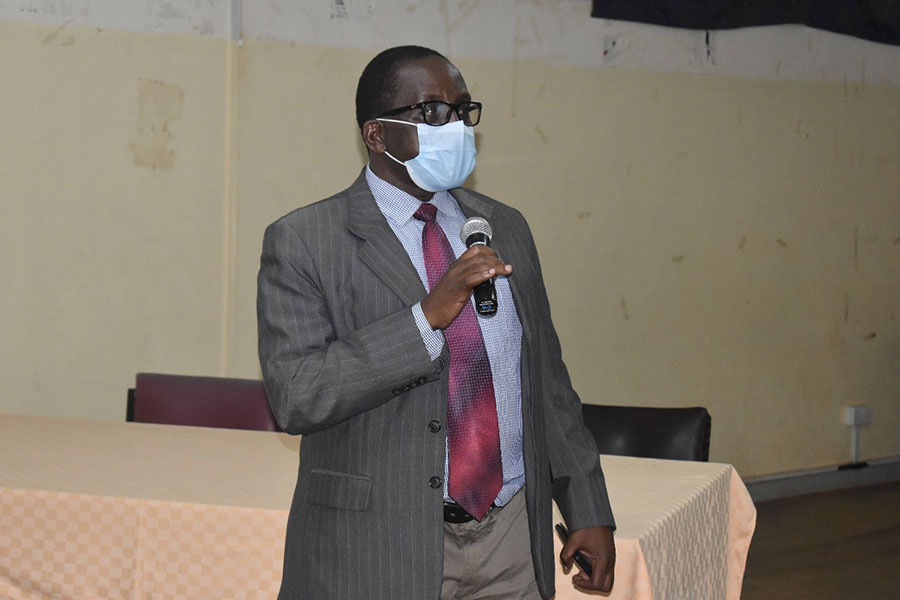
Prof. John David Kabasa, Co- Principal Investigator of the Entomic Research Project making his remarks during the Project dissemination meeting at COVAB.
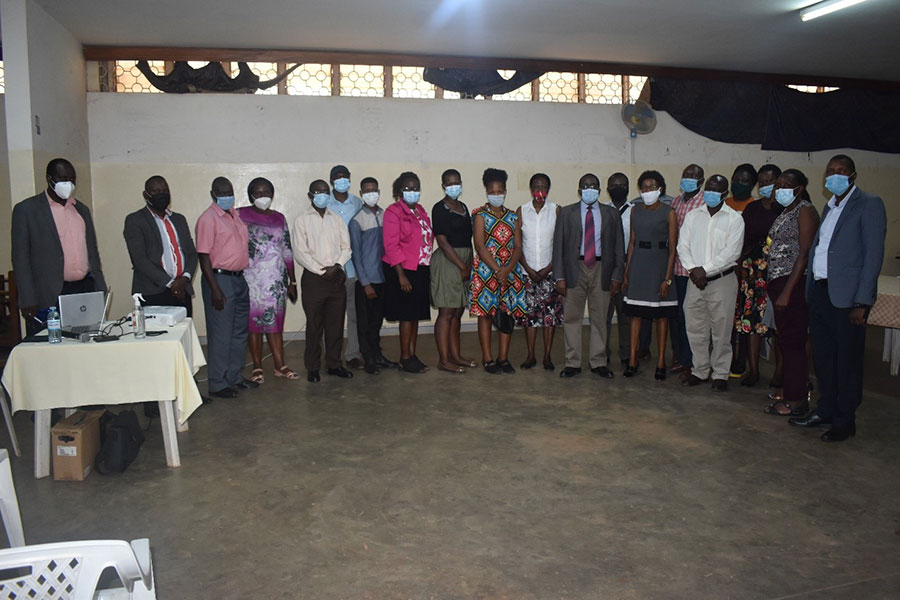
Stakeholders of the Entomic Research Project pose for a group photo during the dissemination meeting at COVAB.
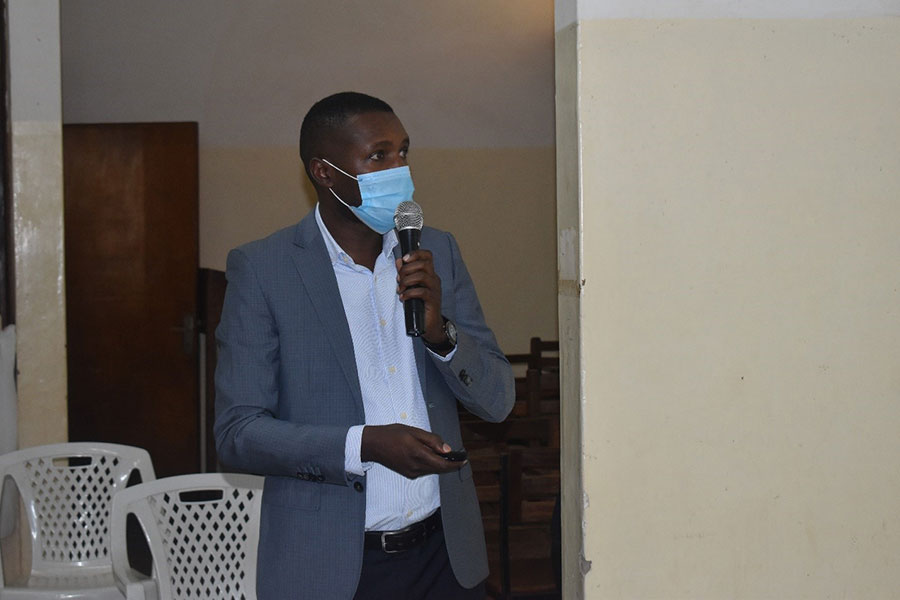
Dr. Richard B. Asaba presenting his research during the Entomic Project Dissemination Meeting at COVAB.
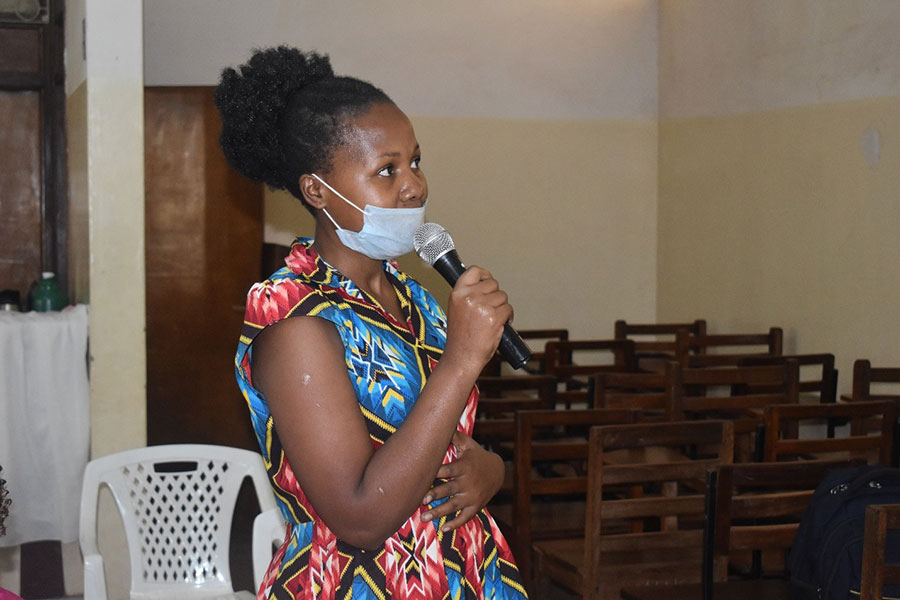
Ms. Lydia Namukomasi presenting her research during the Entomic Project Dissemination Meeting at COVAB.


